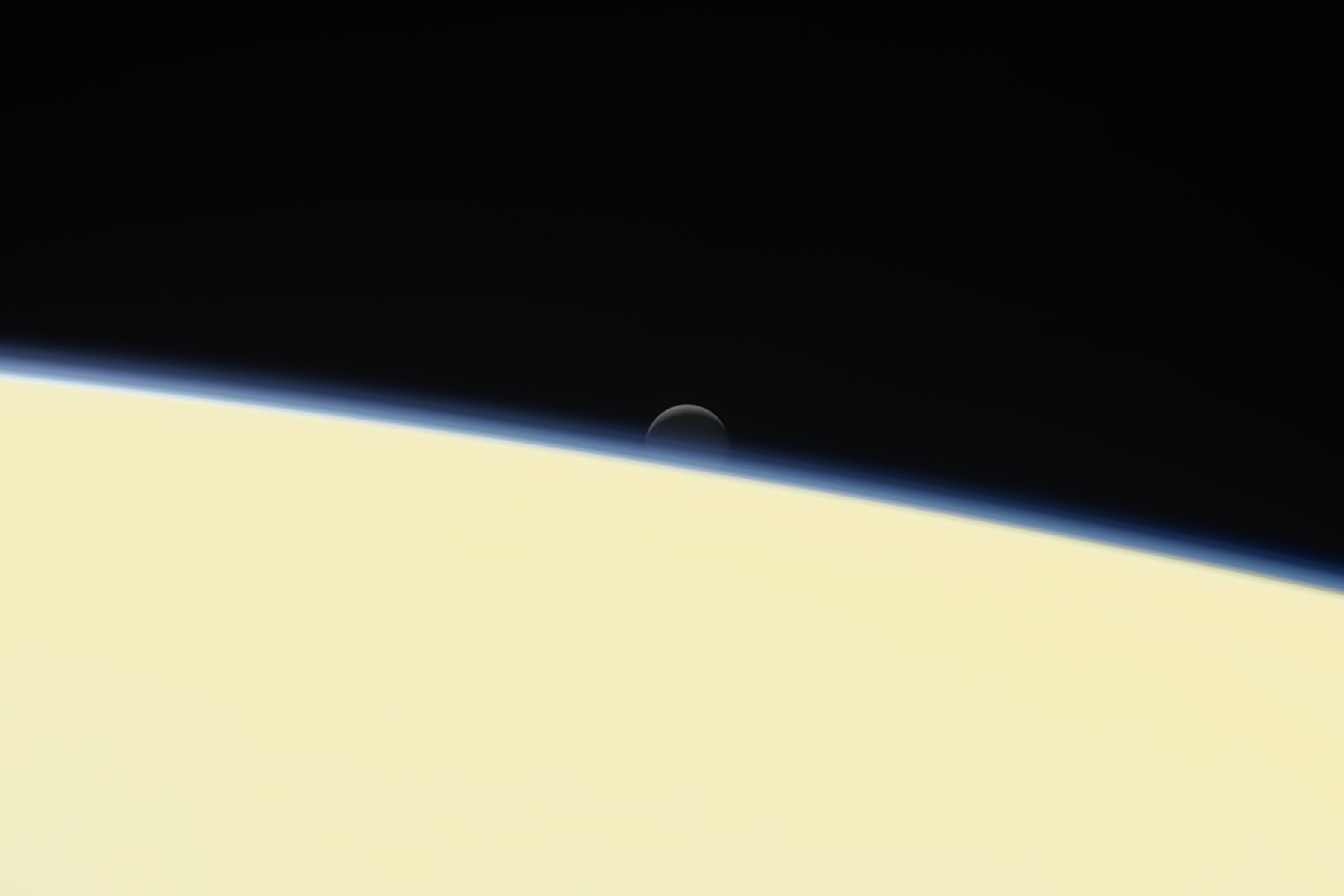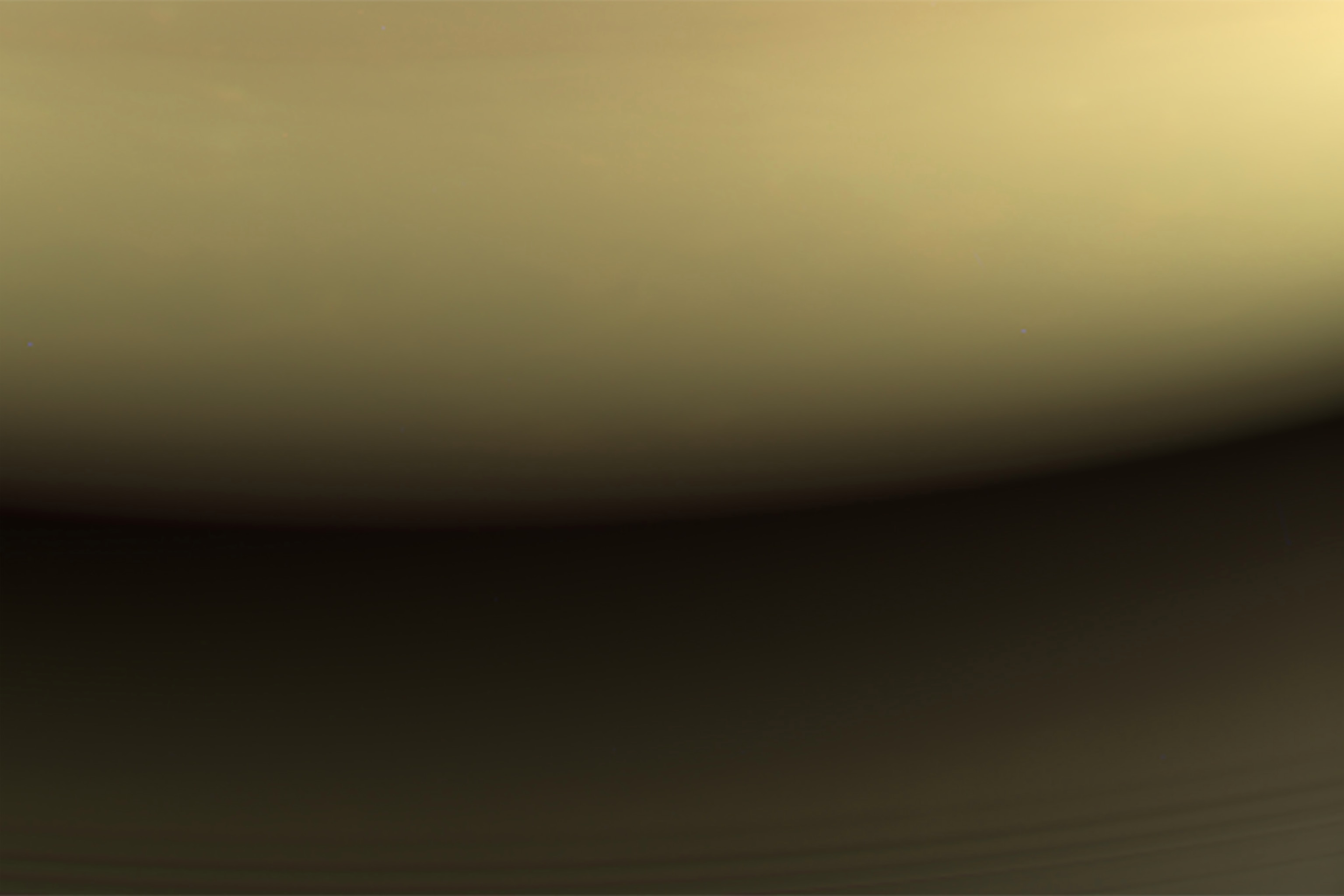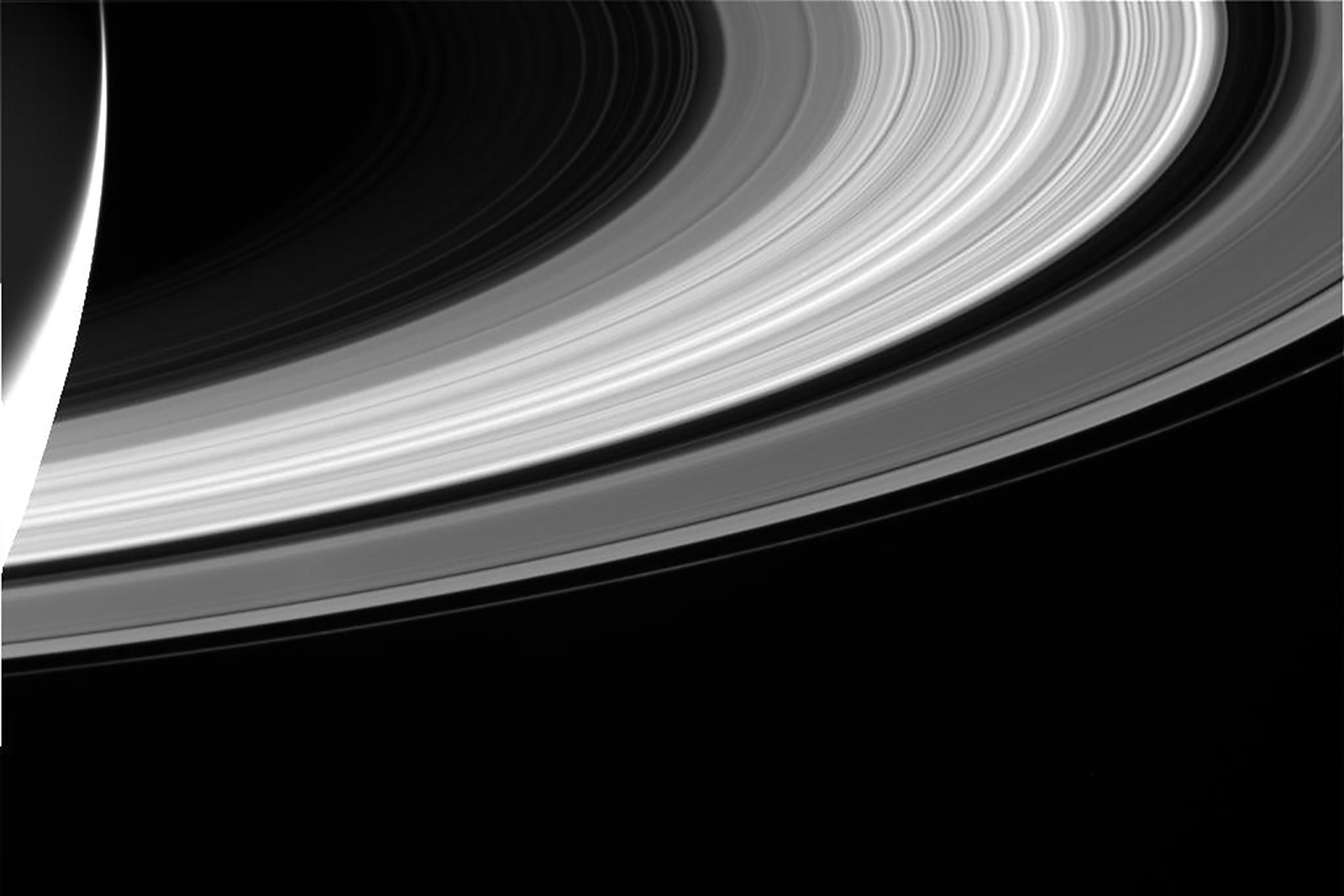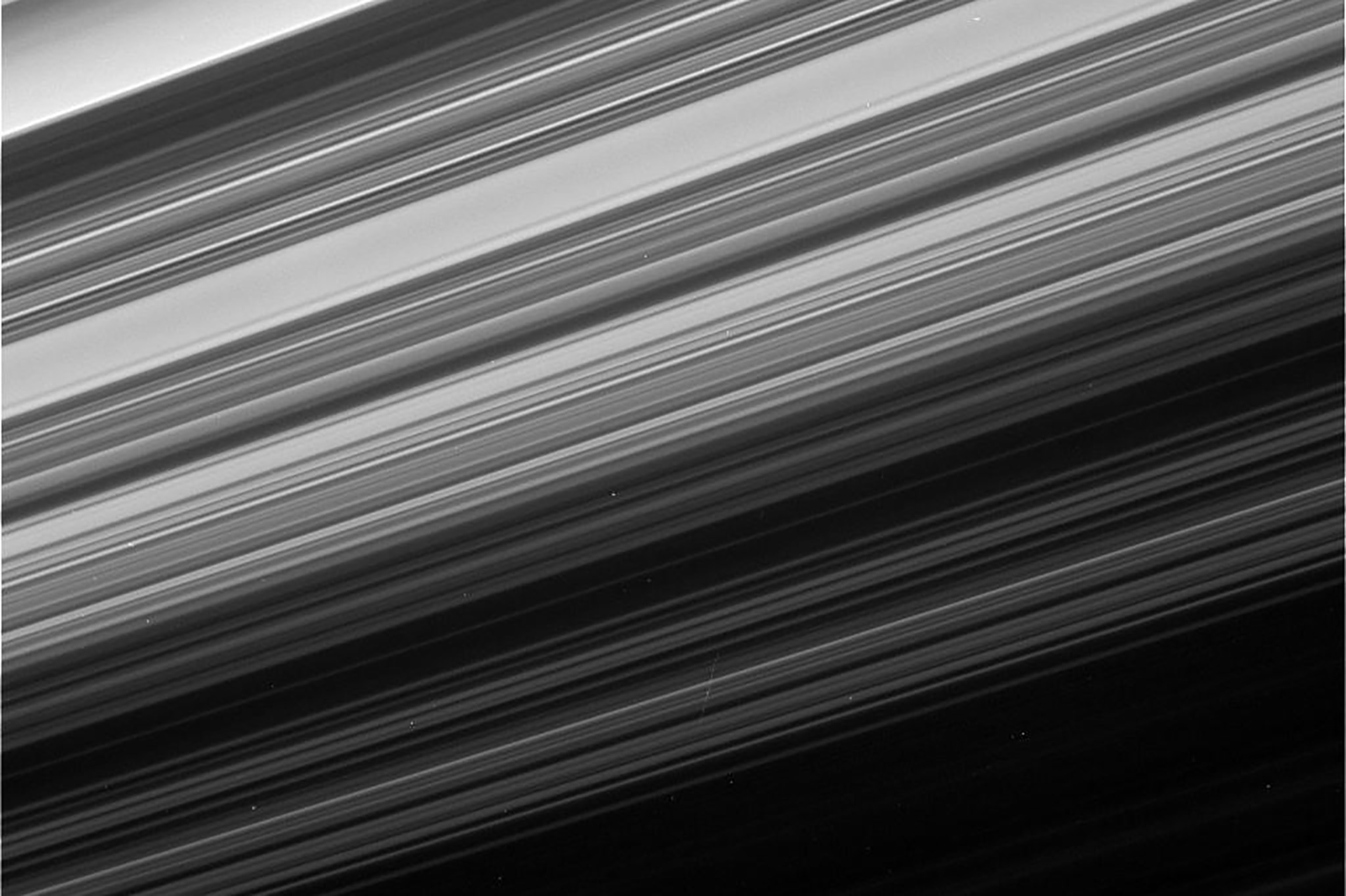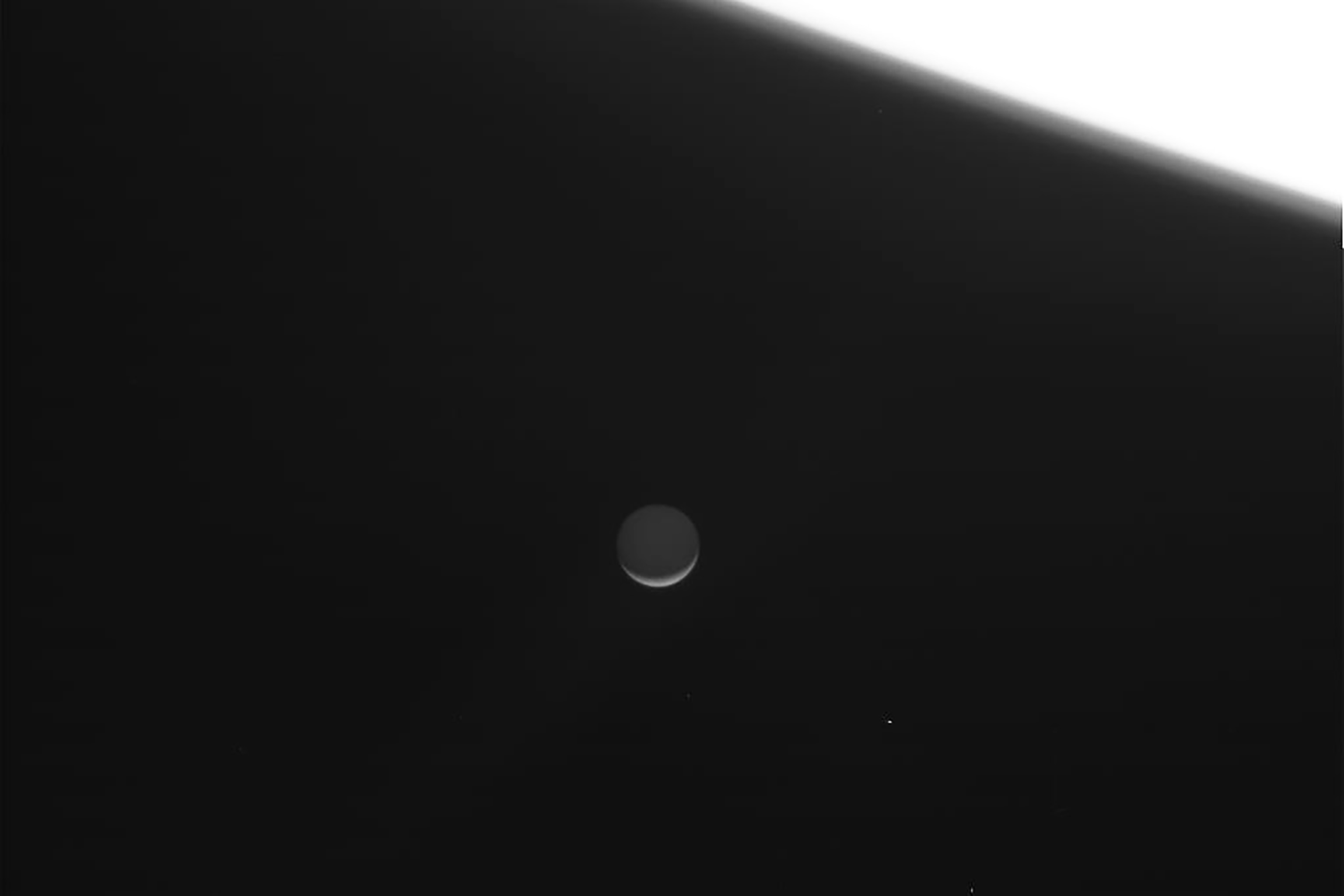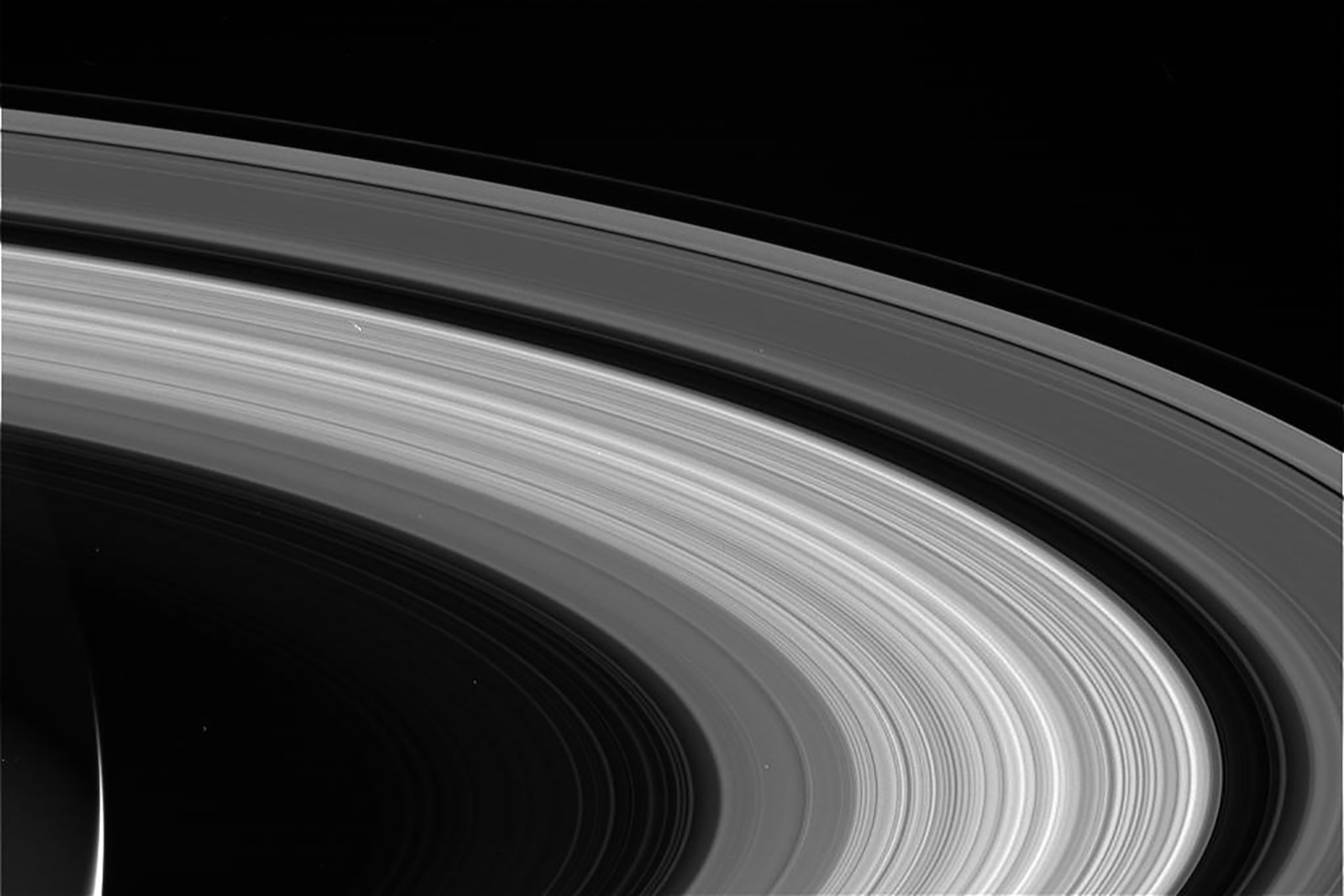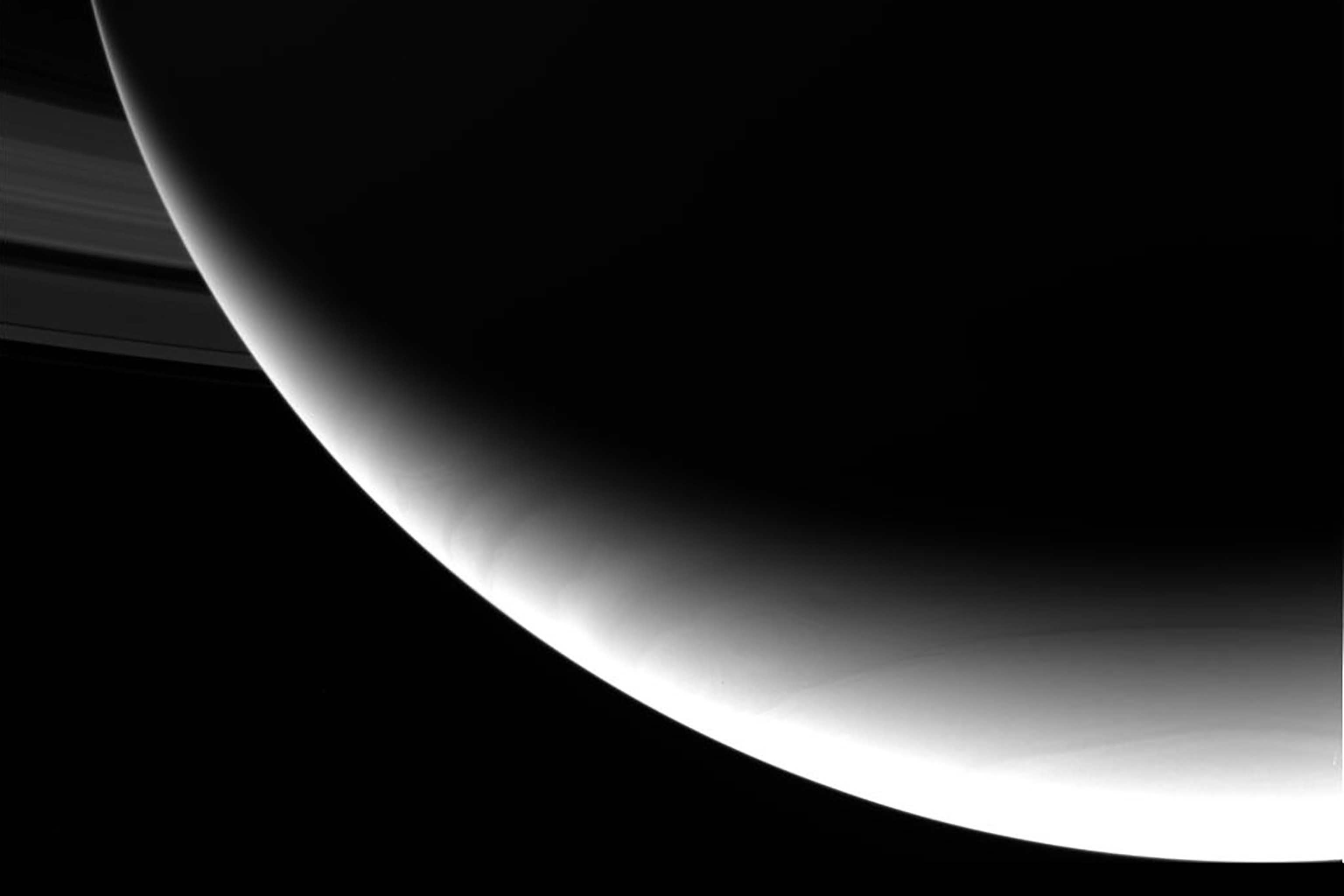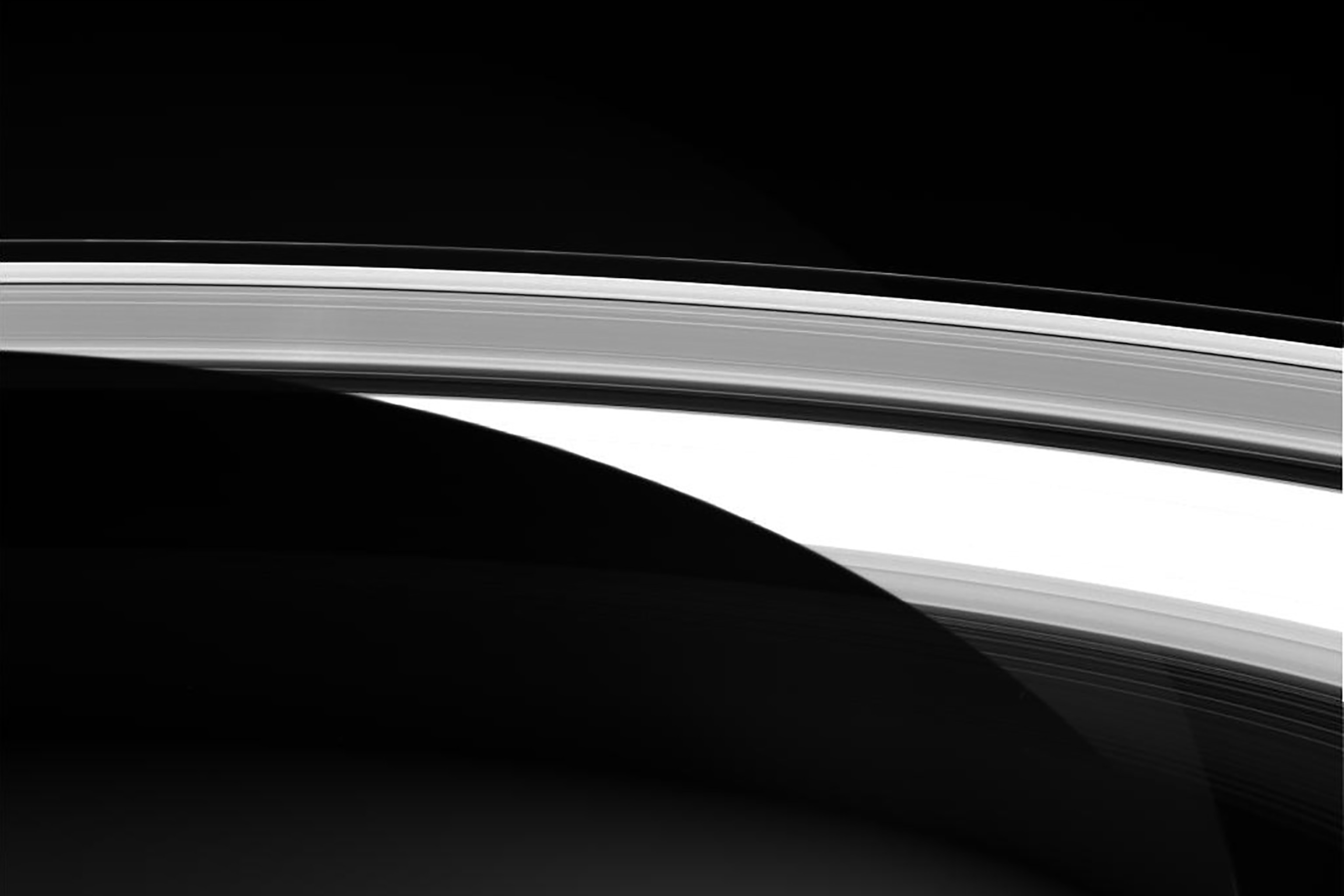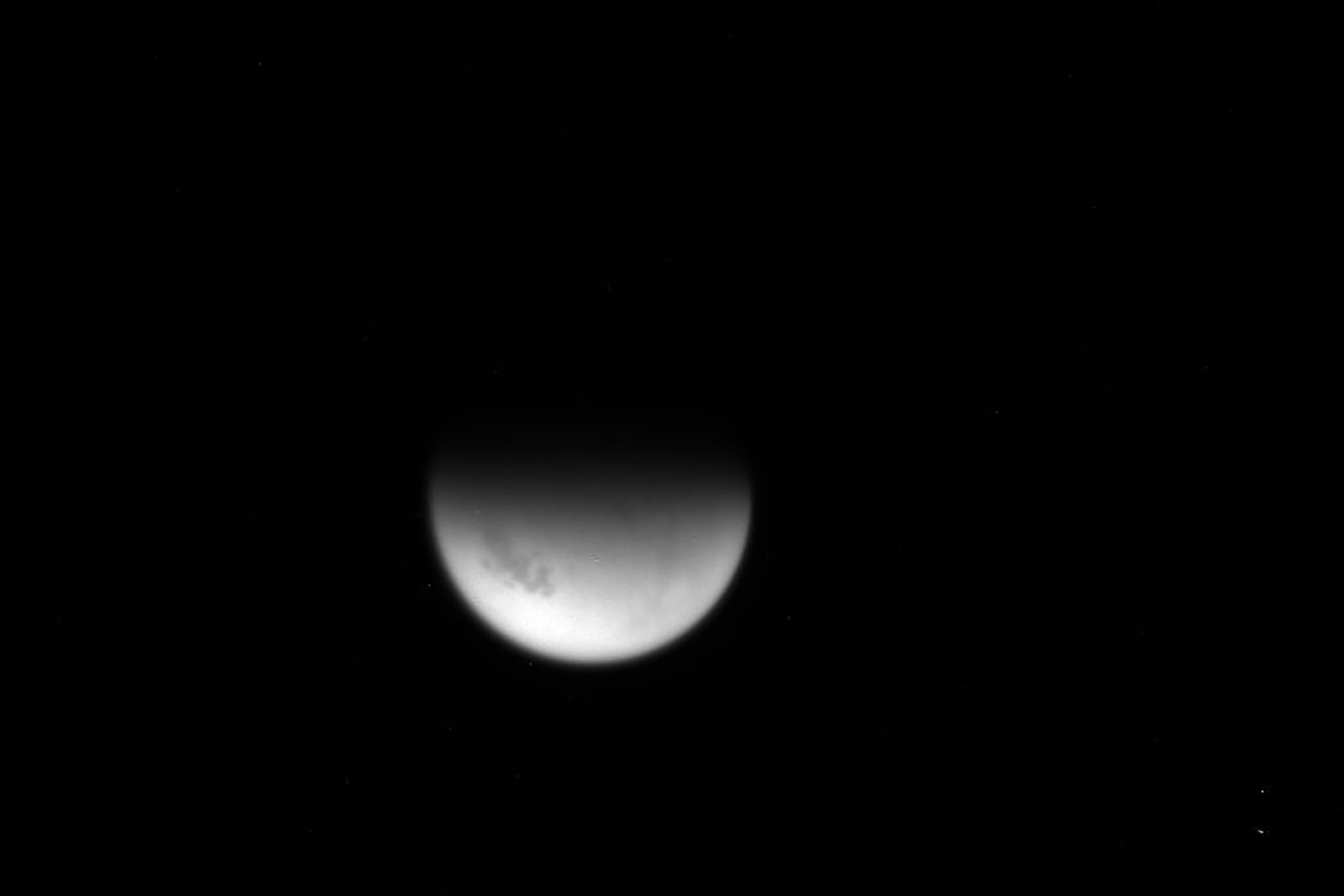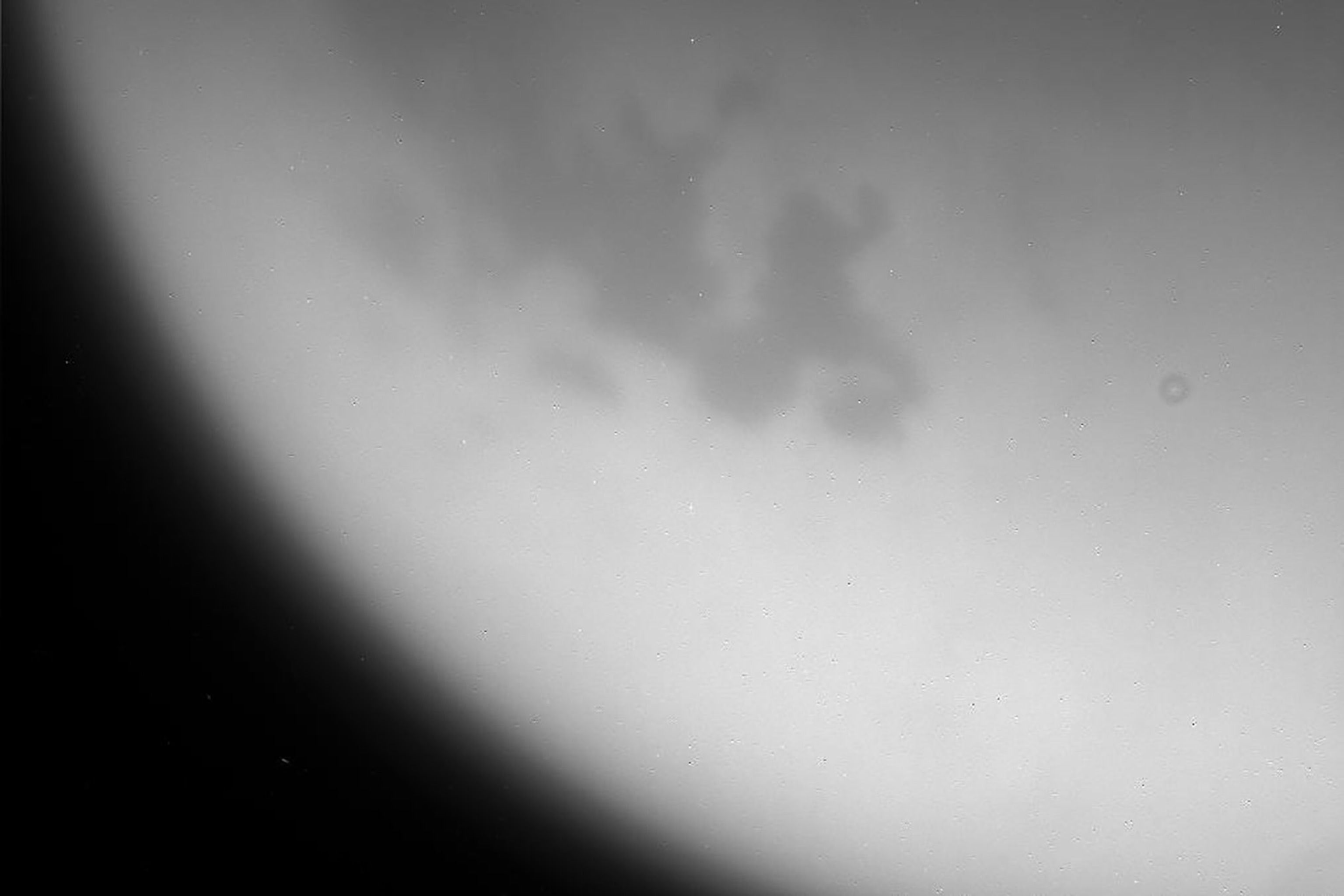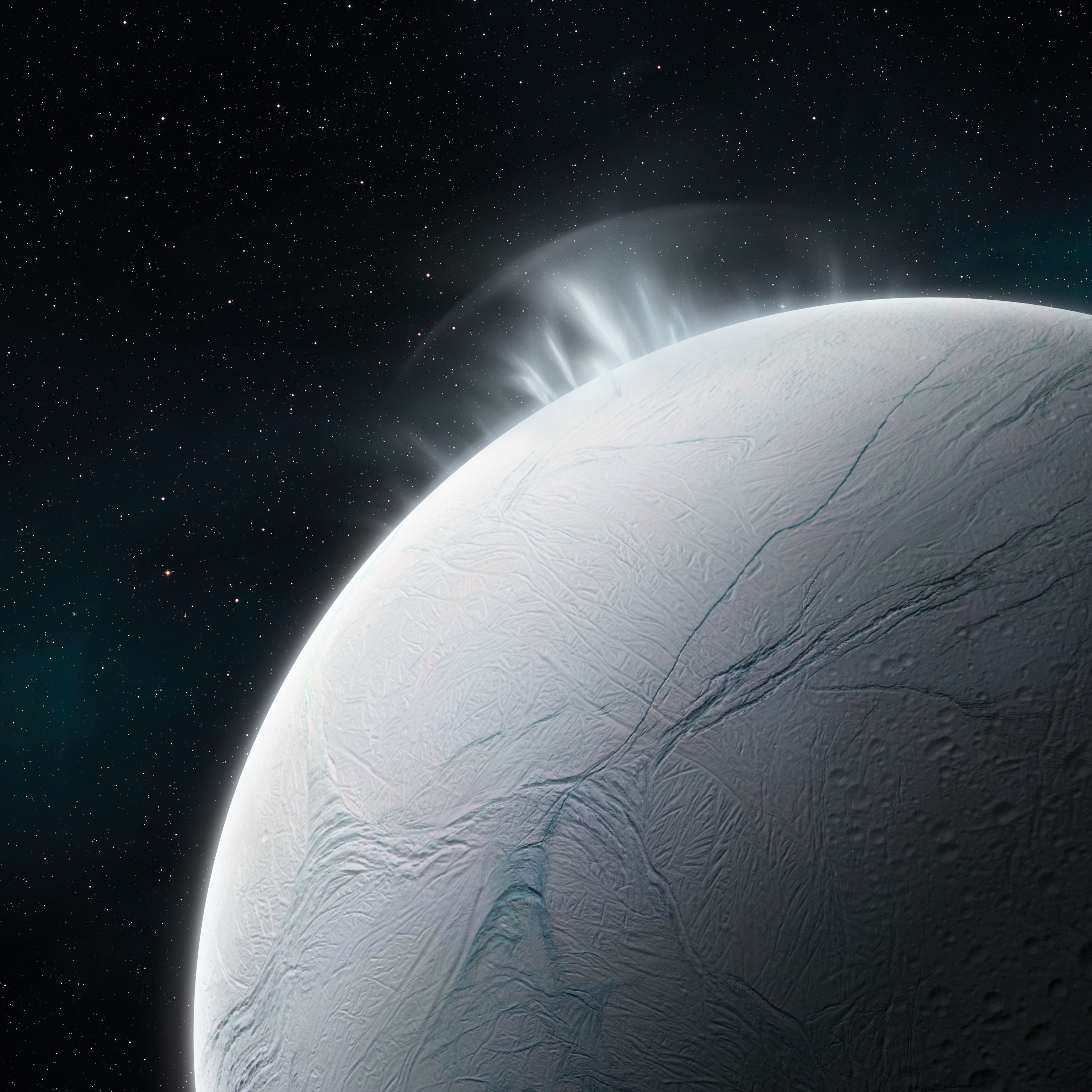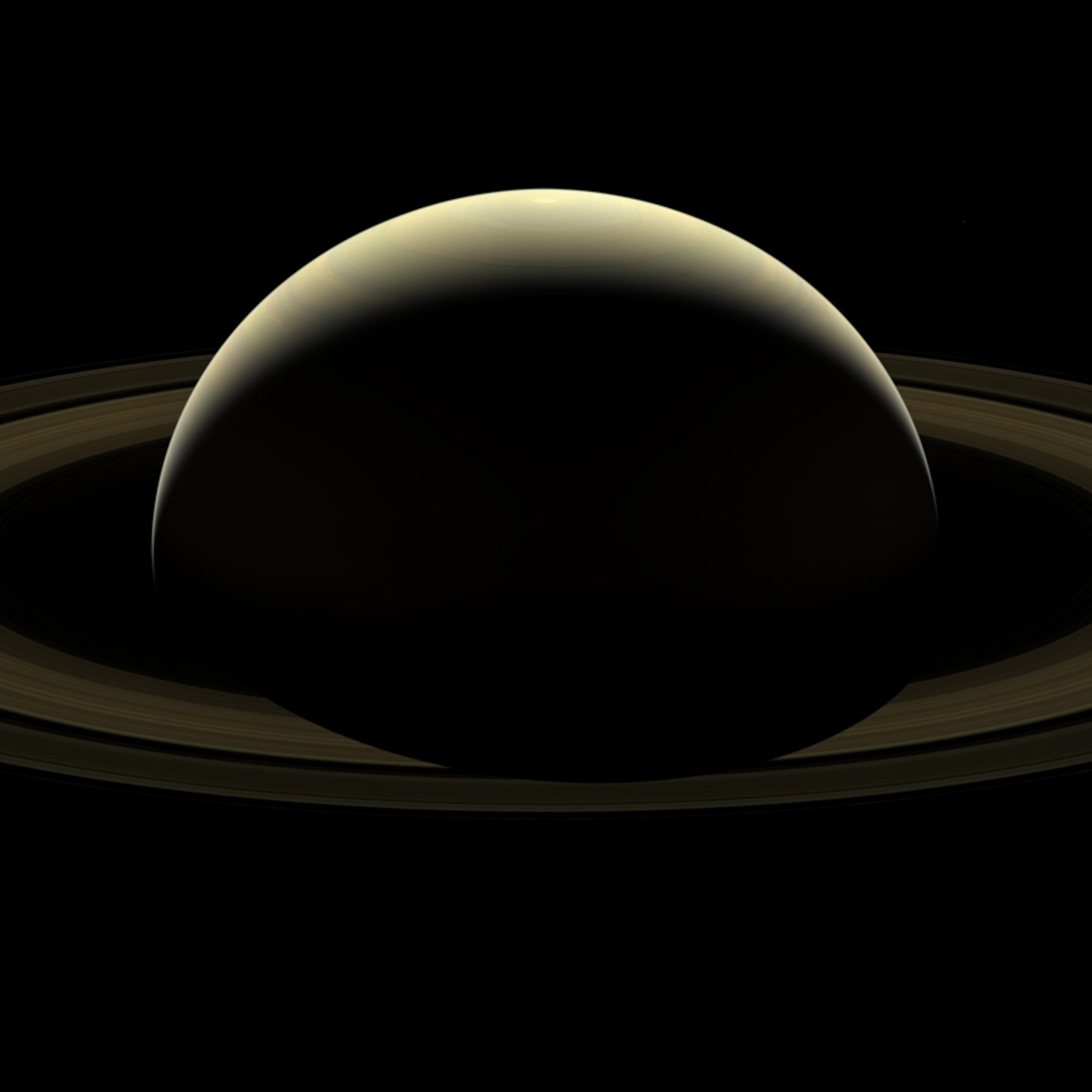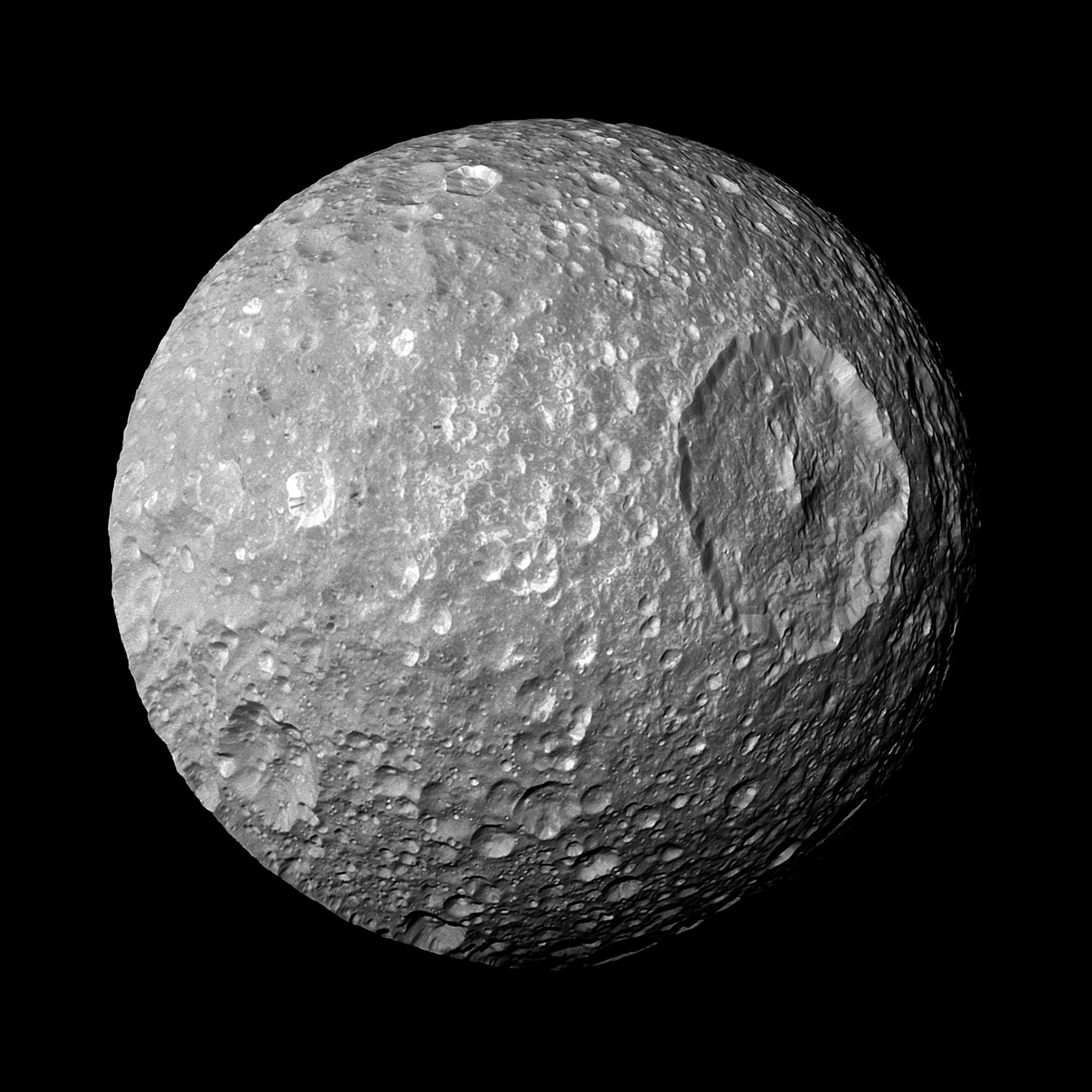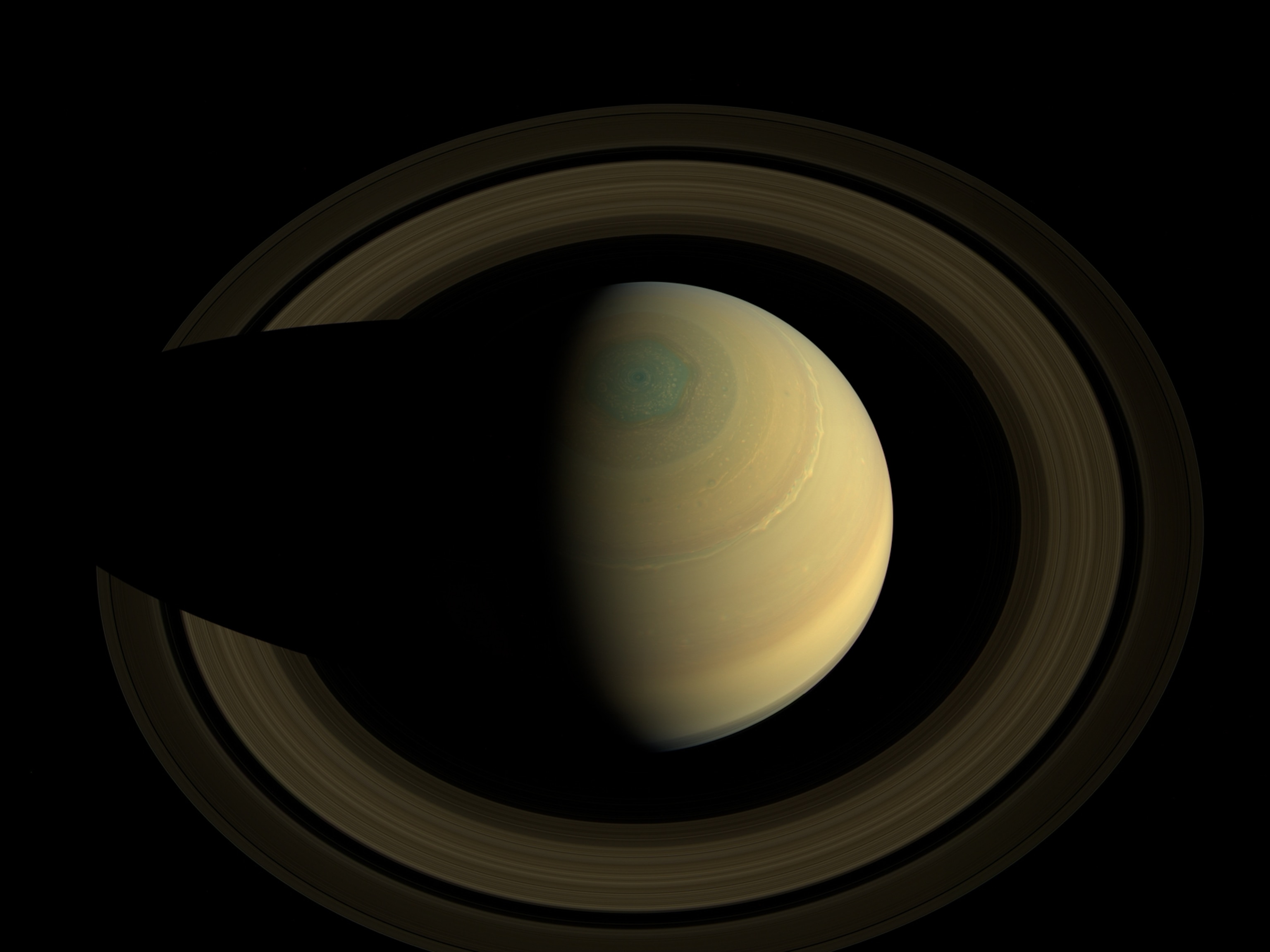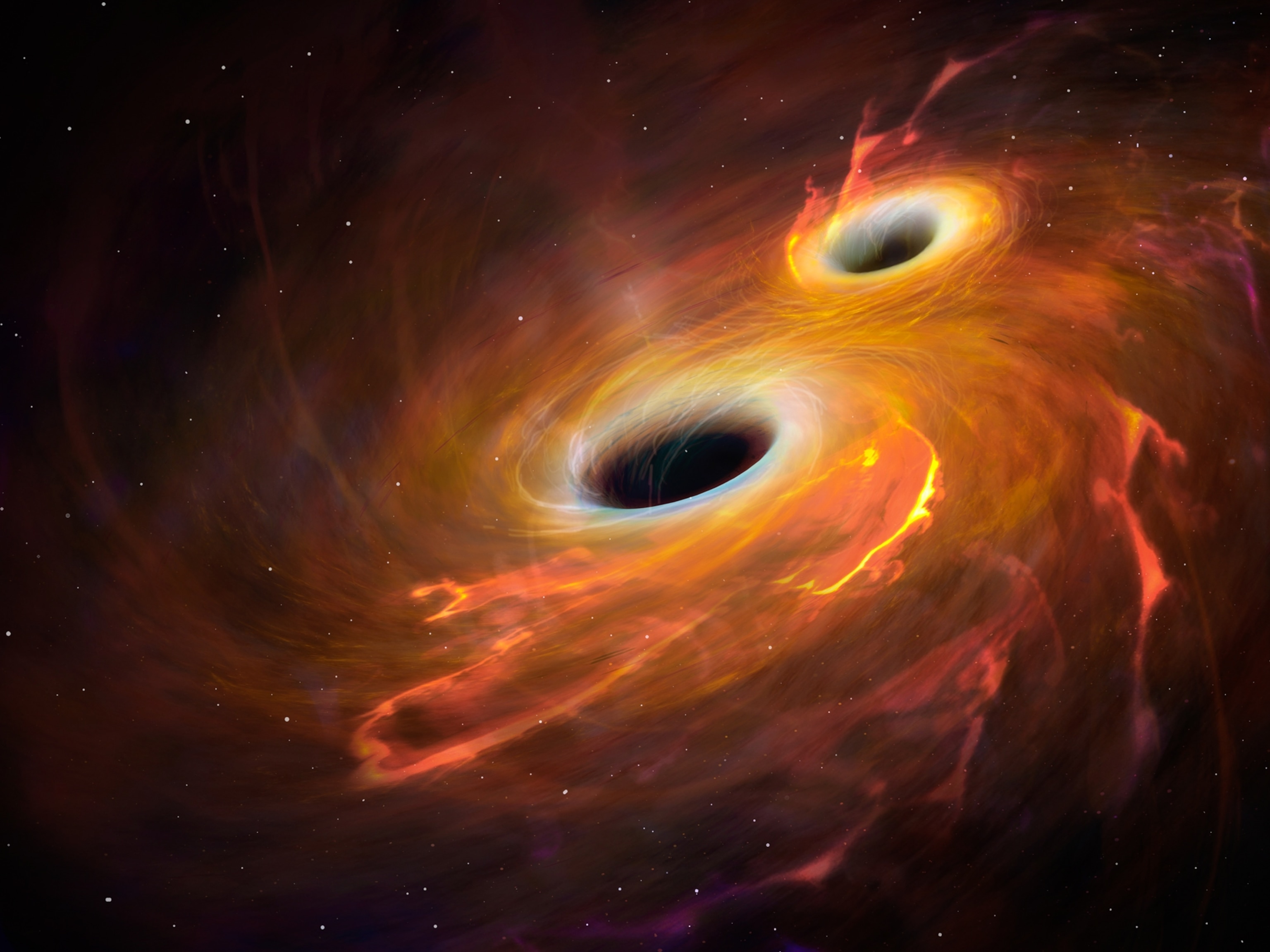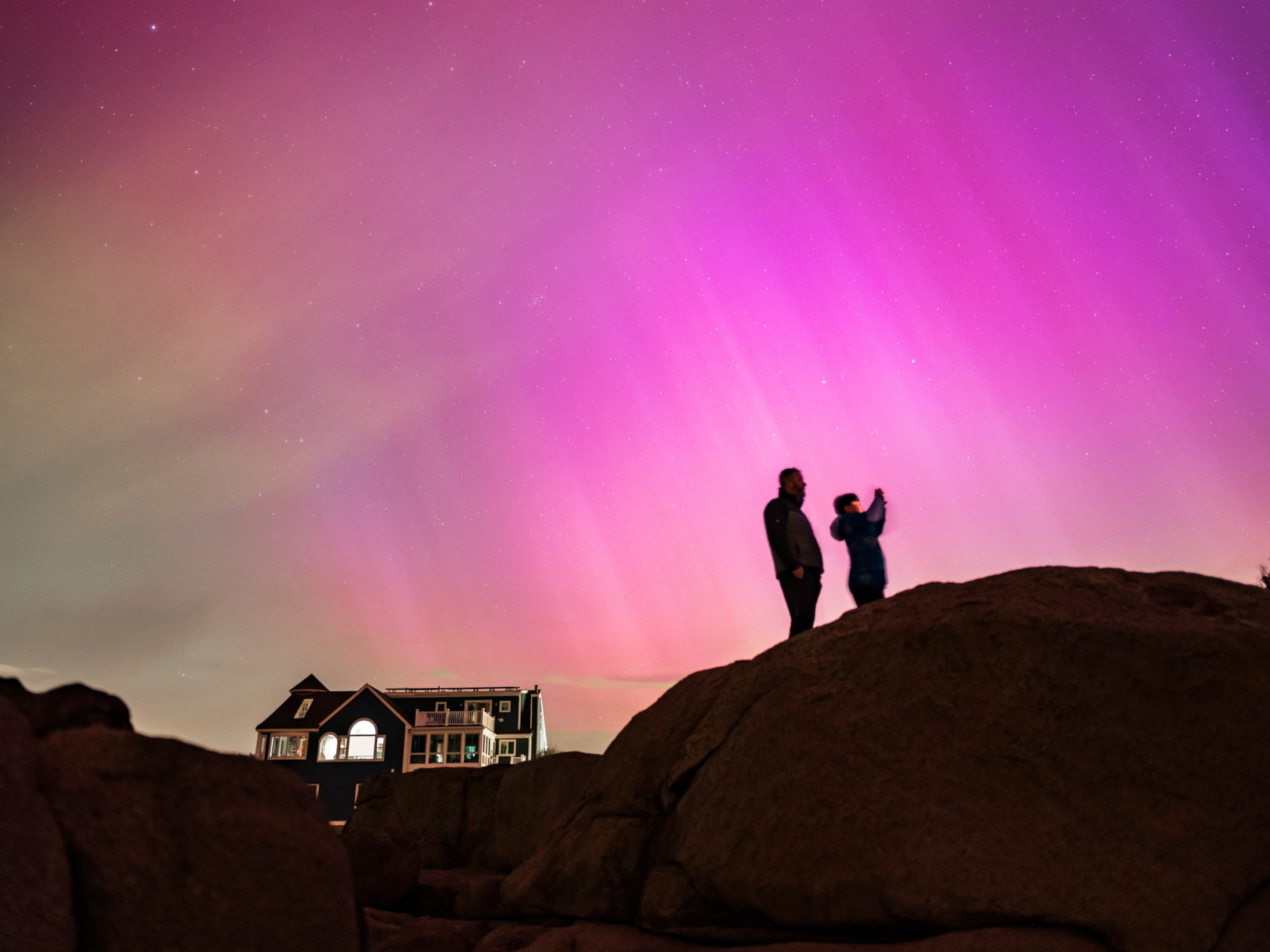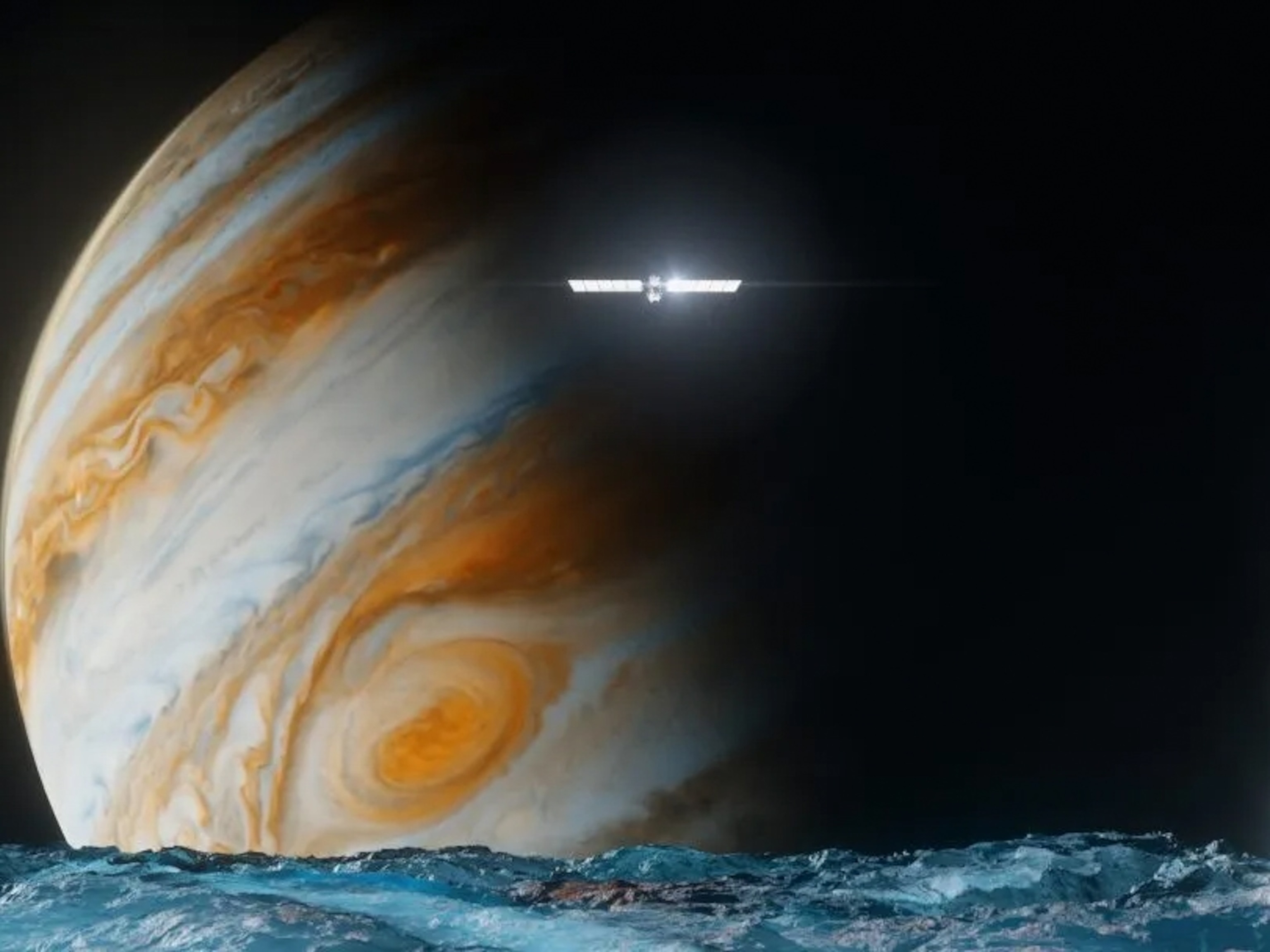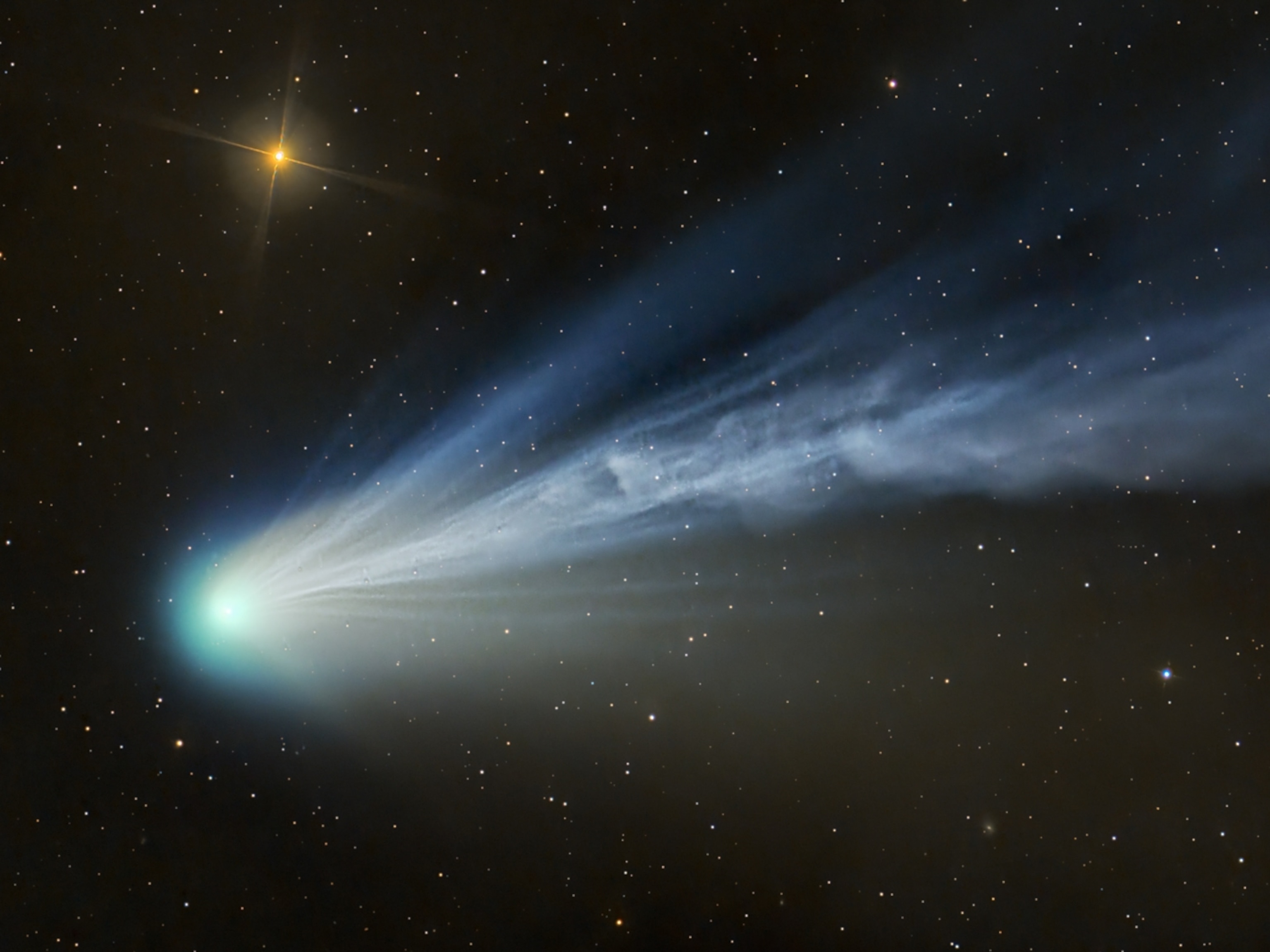Dear Cassini: Why the Saturn Spacecraft Brings Me to Tears
A year after our ambassador to the ringed planet plunged to its doom, one writer reflects on its enduring legacy.
Dear Cassini,
The day you left us, nearly a year ago now, was bittersweet. I knew there was an end date—that 13 years at Saturn was already a lot to ask of you—but when the day arrived for you to go, I wasn’t ready.
That morning, hundreds of us sat together at the Jet Propulsion Laboratory in California waiting for your signal to vanish. Your NASA team members were scattered around the room, some smiling because they were so proud, while others were in tears. My heart was pounding knowing you were falling backward, trying so hard to face your home until the end. I pictured your instruments breaking off, igniting so fast they vaporized, the atmosphere agape, swallowing your arms, then the larger pieces. As you tore apart—shattering and melting—you kept talking, calling, whispering until the end.
Now, you are a haze, your body turned to watercolor. But you are part of the narrative of a planet whose story began billions of years ago. The metal that made you was born of stars, like the bones in my body and the blood in my veins. And, as will one day happen to the people who loved you, your elements have been returned to the cosmos.
Twenty years before, you said goodbye to us for the first time, setting our clouds alight when you launched from Earth. I watched a video of your departure not too long ago—the announcer at NASA’s Kennedy Space Center in Florida excitedly raised his voice: “Four, three, two, one … and liftoff of the Cassini spacecraft on a billion-mile trek to Saturn.” Everyone’s heads craned back as they watched the long tail of flames pushing you up and away.
But I was just a teenager at the time, and like most kids, I was pre-occupied with daily life and less interested in anything outside of myself. I was too young to really understand why you were on your mission. In all honesty, I didn’t know you existed. I loved the stars and space, but the dependable darkness that I casually admired from my window or saw via a random upward glance didn’t connect me to you.
I had first gazed at Saturn through my grandfather’s telescope when I was a child. When I moved my eye away, there was just one point of light, and when I looked into the lens, a whole planet appeared. The hazy, vibrating image was so foreign to me; I didn’t know what to make of it, but I remembered wondering what it would be like to go there in a spaceship.
As the years passed, you arrived at Saturn, and I found myself suddenly more aware of the ringed world. Through your eyes, I saw something new, and I was entranced. Almost without trying, I knew those rings, the tan atmosphere, the eclectic family of moons.
And yet, I did not know you. By the time your full meaning sunk in for me, you didn’t have much time left.
When I think about you now and all that you’ve accomplished in your lifetime, I am amazed. Not only did you teach us about the most iconic planet in our solar system, but you also brought the world together. During your 13 years, anyone could sit atop your radio dish and hold on every time you changed course around the giant moon Titan, skimmed above Saturn’s rings, or daringly swung out to the ice moon Enceladus to sniff and taste its alien water geysers. We were all there, as planetary scientist Linda Spilker says, with “ring-side seats.” Your arcs through space were risky—one wrong move could have cut us off forever. But as you dove through your complex ballet, your risks yielded immeasurable rewards.
The discovery of those geysers on Enceladus and the bizarre methane lakes on Titan have already changed our understanding of where life might exist in the solar system. Because of you, I’ll likely see missions set out to those moons on the quest to find out whether we have company in our own cosmic neighborhood. That is part of your legacy.
When I come across images you took or recall the discoveries you made, I still feel a deep, profound admiration—but a sigh follows each exultation. Every day that you aren’t calling in, sending new discoveries or photos, is a reminder of how trapped we are without you.
The day before we were due to lose you, you called into the Deep Space Network one last time to deliver your final set of images, and for a second, we lost our connection to you. The urgency on everyone’s faces was so telling—connection is everything. I’ve seen some element of this every time I have been in NASA’s mission control. Each call from you briefly lifted us out of ourselves and placed us among the stars.
After your grand finale last September, we toasted your triumphs and held vigil. During that celebration of your life, I found out how many more people were also heartbroken over losing you, and how much you touched the lives of people who did not even know you existed.
Fast Facts: Cassini

Agencies: NASA, ESA
Launch Date: October 15, 1997
Launch Vehicle: Titan IVB/Centaur
Start of Mission: June 30, 2004
End of Mission: September 15, 2017
Mass: 12,593 pounds (with Huygens probe)
Power Source: Radioisotope Thermoelectric Generator
On my way to JPL to witness the end, a man at the airport made a comment about the Saturn sticker I had on my laptop. It’s a purple-ish backlit image, the one the team loves the most. He said, “I love that photo of Saturn. Do you know how they took it?” I told him that you did, but that your mission was ending in two days. He was shocked, and said, “I didn’t know there was a spacecraft at Saturn.” The same moment he became thrilled to know you, he too instantly started to grieve. And I realized that we were not mourning so much for your body, but for our own sense of what we have lost.
When we sent you away, we asked you to give us a view otherwise unreachable, to shrink the billion miles of space between us into something smaller and more precious. You were our ambassador and explorer, carrying the eyes and ears of more than six billion people. You were always more than metal; you were the dream of the thousands of scientists who built you, the sum of their late nights, missed dinners, their long-unanswered childhood questions about the cosmos. Together we rebelled against the limits of our fragile bodies and the gravity of our planet. On your journey to Saturn, you made us all astronauts.
I know I’m too late, but I wish I could say thank you for the 13 years, even for the thousands of days I didn’t know you were out there exploring for me. What a gift it is to be given a new perspective and to see where we are in this universe. What a tremendous gift you gave us all: a view of our place in the cosmos—a view that is worth knowing and loving and protecting.
You may not recall, but your project manager Earl Maize said just before your finale that you “going out in a blaze of glory is a spectacular ending and a phenomenal conclusion to a chapter in humankind’s exploration of the planets. The book is not complete. There is more to come.”
Indeed, I am buoyed by the fact that we can build future Cassini’s and send them out into the dark, setting ourselves free once again. Surely someday we will even go back to Saturn. And when we arrive, we will all sit atop the antenna of your successor, gazing into the face of the majestic world that embraced you, and we will meet again.
Thank you for giving me the stars.
Thank you for taking me to Saturn.
Love,
Shannon
